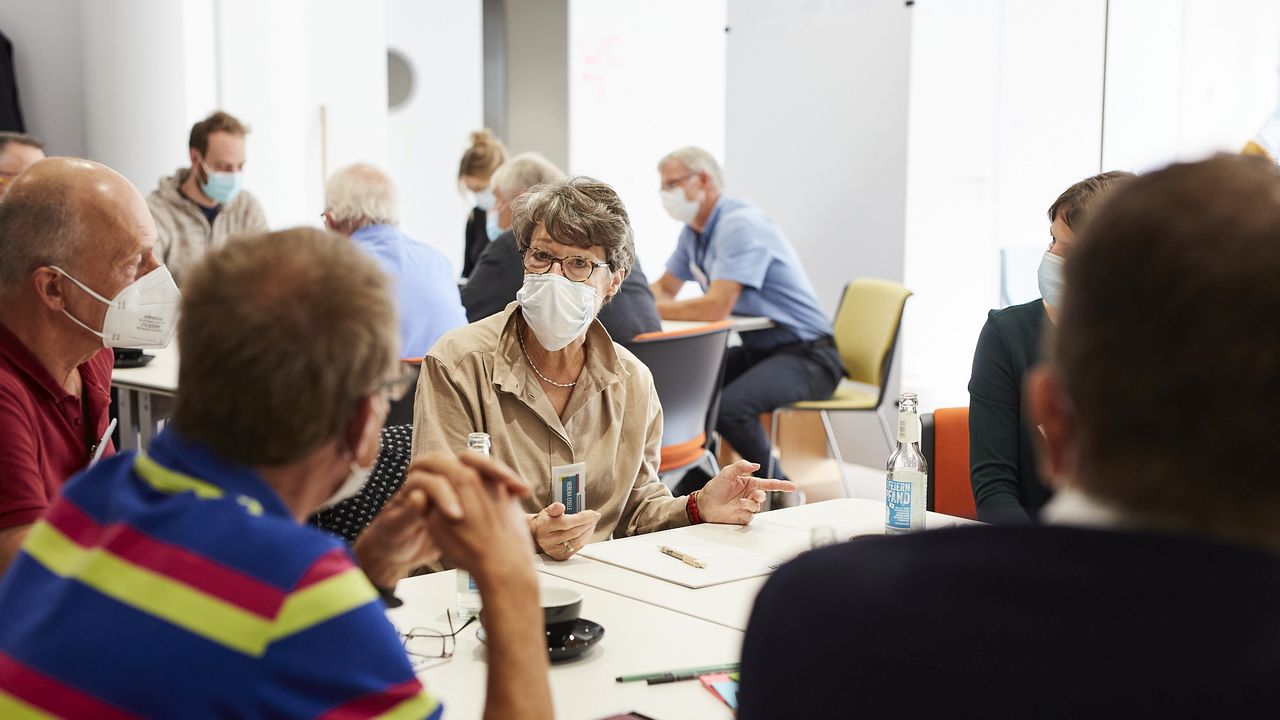
Challenges like climate change and the COVID-19 pandemic are moving science into the spotlight. But what are the wishes and expectations of the citizens when it comes to the work of researchers? The Karlsruhe Institute for Technology (KIT) faces these questions by establishing citizens' dialogs, organized by researchers from Technology Assessment.
"Many people are not only experts of their own living conditions, but also have valuable knowledge proven in daily life. This can help us to conduct research with foresight," KIT President Professor Holger Hanselka states. "We are convinced that this knowledge will contribute to the excellence of our research. KIT will therefore invite citizens once a year to citizens' dialog events on current topics of research and upcoming technologies."
Positive Experience of Citizens' Dialog on Artificial Intelligence
The positive experiences gained during a successful dialog on "Artificial intelligence in our daily lives" lead to the decision to organize more events of this kind. During the first KIT Science Week in October 2021, citizens had an entire day's time to discuss the opportunities and threats of artificial intelligence (AI) at length and formulate concrete suggestions for KIT. Among other things, the participants wished for a more transparent consideration of the opportunities and threats of AI applications, more detailed information on the research done at KIT in this area, and for an opportunity to experience AI systems in their application.
Increasing Integration of Society into Scientific Routine
Research on the citizens' dialogs will be conducted by KIT's Institute for Technology Assessment and Systems Analysis (ITAS). "We at ITAS are convinced that science should be in a close dialog with the citizens. After all, they are affected by the positive and negative results of technology," says Professor Armin Grunwald, Head of ITAS. "With this in mind, we are looking forward to that task and welcome KIT's courageous step to increasingly include the wishes and expectations of society in its scientific routine."
Climate Change, Mobility, Health, and More
The content of the citizens' dialogs will range from research on climate change to new technologies from the sectors of health and mobility. Regardless of the topic, ITAS aims to test and develop new methods of citizen participation. According to Grunwald, one promising method is to select so-called citizen ambassadors who show a particularly strong interest in a specific topic. These will get the chance to familiarize themselves with the topic in advance with the support of the scientists and will then contribute their knowledge to the dialog.
Science Year 2022 - Participate!
Citizens and their questions are also in the center of the Science Year 2022 that Bettina Stark-Watzinger, Federal Minister of Education and Research, inaugurated on January 14 in Berlin.






